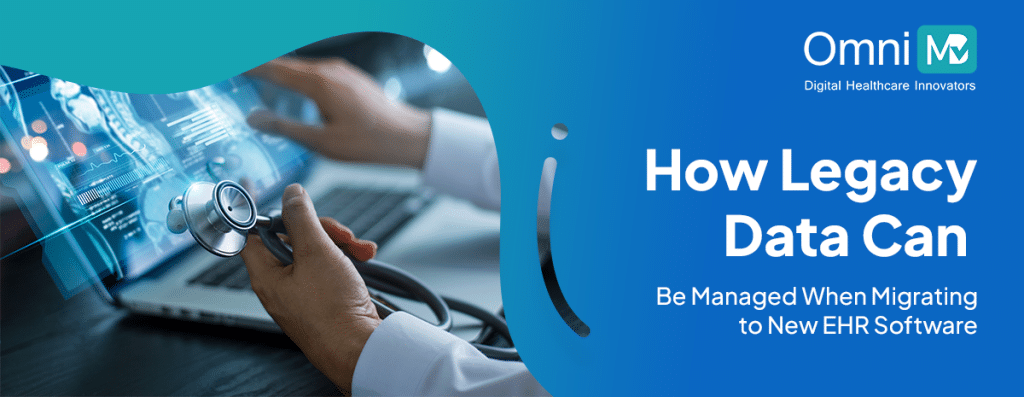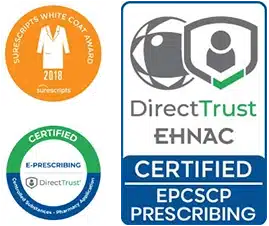EHRs are the mainstay in most healthcare organizations today. However, a healthcare provider is sometimes required to seek a next-generation EHR, or a hospital may be required to switch to a new EHR system following a merger. The next question is what to do with the legacy data after replacing the EHR Software. The right way forward is to develop a legacy data management process focusing on aspects such as legacy data migration and archiving.
Problems with Legacy Data
Sometimes, it may be impossible to retire legacy data and related systems. So that legacy systems can be maintained and data be secure, healthcare facilities must pay high maintenance fees for software maintenance, data center costs, internal labor costs, and such. Even in the case of retired EHRs/EMRs, they become legacy systems if they are still used to extract data for information release for continuity of care.
Thus, legacy data can be any information that hasn’t yet been transferred to the new platform. As you will see, legacy systems likely do not receive any ongoing updates any longer but require annual subscription fees. Also, old passwords are probably lost, or the new staff is no longer trained on the old EHR System Software. Such situations pose an administrative nightmare, especially if requests for audits and legal requests for information are made.
Data Migration:
One of the ways that legacy data can be managed is by data migration in a healthcare facility to a new, smoother, and faster EHR. If possible, automatic data migration to the new system should be planned. Ideally, this process should begin when the new EHR is launched to maintain continuity of care. This process, in which data is moved to a new environment, is usually carried out by appropriately qualified service providers.
What is Data Migration in Healthcare?
Data migration is migrating or transferring data assets from a legacy system to a new system within a hospital environment. This is an essential aspect of modernization in hospitals, as with each passing day, much healthcare application data gets accumulated and even stored in medical facilities globally. Patient data that is held in legacy database solutions must be stored securely. The aim of transferring or migrating these records should be utmost safety and failproof operations to ensure that personal details, medical records, etc., are not lost or undermined.
Healthcare Data Migration Benefits:
Migrating healthcare data has its benefits. Some of these benefits are mentioned here:
- Better Reliability: You stay in tune with all the benefits of replacing your legacy healthcare system. In vogue, you also keep informed of the new advanced security protocols and software management methods.
- Faster Overall Performance: Since the new EHR software will be quicker and smoother, it will perform faster than the legacy system.
- Reduces Costs: It can be costly to maintain legacy systems. The legacy system could have stopped receiving updates and support long ago.
- Higher Productivity: Clinicians and other healthcare professionals can deliver higher productivity, which means they eventually handle their work with less effort and more efficiency.
Legacy Data Archiving:
Since most healthcare data must be stored indefinitely according to legislation, it is appropriate if the legacy data is archived. Legacy data can be archived cost-effectively. Also, the specialists and managers can access all the stored data whenever needed. Also, it is possible to archive all the data not currently in active demand. Data archiving also helps modernize the legacy data systems or EHR Service Software in healthcare.
Advantages of archiving healthcare data:
- Substantial Savings: Since you can do away with the expenses of managing a legacy data system, you only need to cover operational fees while employing a data archiving solution.
- Better Compliance: Data archiving means the goal of meeting the requirements of HIPAA and other regulations becomes easier.
- Boosts Productivity: A better archiving system helps improve the productivity of the medical establishment’s staff.
- Easy Accessibility: An archiving system that allows easy access to data benefits the entire healthcare organization by enabling you to utilize it without any issues.
End Note:
Many healthcare organizations struggle to discover how to handle legacy data when switching EHRs. Fortunately, technology in the form of data migration and data archival can help. While implementing a new EHR, you should not overlook your legacy data. It would help if you were proactive about legacy data migration and archiving so your healthcare organization does not face any issues later. If you don’t take care of your legacy data, you could regret your decision, creating significant hindrances along the way. OmniMD offers an EHR that is designed to gel seamlessly with your workflows. It helps manage your documents, reminds you of your clinical summaries, helps prescribe the proper medication, and provides complete analytics. Contact us to learn more!





